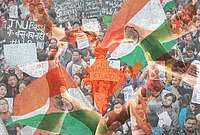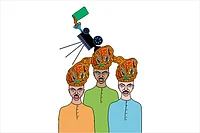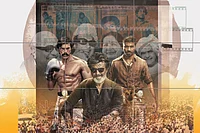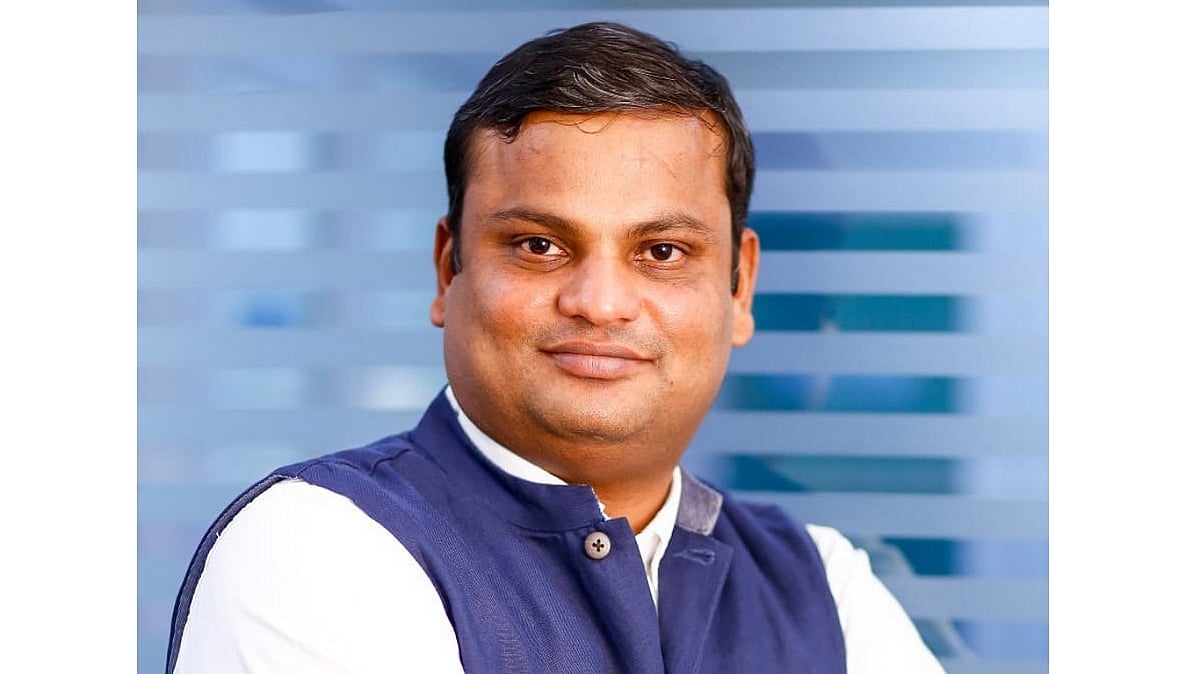Outlook Lens
The Doordarshan logo with its broad cultural significance has witnessed the evolution of India’s socio-political and media landscape.
Advertisement
Latest
Advertisement
The NCBC emphasised while there are indeed underprivileged sections within the Muslim community, treating the entire religion as backward overlooks the diversity and complexities within Muslim society.
Advertisement
Under an order by the Supreme Court of India, April 8, 2019, the Election Commission has mandated VVPAT slips count of five randomly selected polling stations in each assembly constituency/segment of the parliamentary constituency of the states/UTs.
As the war in Gaza completes 200 days, both Israel and Hamas have decided to escalate their attacks, narrowing any chances of a truce between the two rivals.
Magazine
Magazine Home
-
Outlook reporters undertake this solemn guarantee towards readers and viewers that their report is genuine, it is unbiased, it is factual, it is objective, it is balanced, and above all, that it is true.
-
Tamil Nadu, a bastion of Dravidian political ideology, has always been a difficult terrain for the Bharatiya Janata Party (BJP)
-
The Bahujan Samaj Party remains an enigma, but it has come up with a very smart game plan for the Lok Sabha elections
-
Can the 2024 Lok Sabha elections reverse the symbolic invisibilisation of Muslims from UP’s socio-political arena?
-
Nagina Lok Sabha constituency in Bijnor district has emerged as a key battleground for the future of Dalit politics in Uttar Pradesh
-
Arun Govil, who played Lord Ram in the popular television series, Ramayan, flips the conventions of devotion on the campaign trail
-
Politicians visiting Madhya Pradesh are making big promises to the people, but for the Adivasis, it’s still about Jal, Jungle, Jameen
-
In the calm foothills of the Eastern Himalayas, there is a storm brewing between the BJP and the TMC. The voters are divided
-
The BJP hopes to sweep Assam in the Lok Sabha polls riding on PM Modi and CM Himanta Biswa Sarma’s development and Hindutva agenda. The Opposition has constituency-specific strategies
-
Are Kashmiris set to heed politicians' call to come out and vote in large numbers?
-
While the Congress is deeply rooted in the city’s psyche, the BJP is eyeing 3.5 lakh Muslim voters
-
Udupi, Dakshina Kannada and Uttara Kannada—districts in coastal Karnataka, which witnessed increased instances of polarisation in the last few years—have been the BJP’s stronghold
-
Whether the Congress’ Rahul Gandhi or CPI’s Annie Raja wins, Wayanad has widened the chasm in the INDIA bloc
-
The resurgence of swords reinforces Hindutva’s fondness for Rajput rulers and Kshatriya pride and identity
-
The evolution from devotional egalitarianism to social justice
-
Will the BJP’s desperate efforts to splinter the people along caste, religious, regional and linguistic fault lines bear fruit in Tamil Nadu’s western districts?
-
Ayodhya, a city of stark contrasts, where the echoes of devotion mingle with the modern chaos of daily life
Previous Issue
Advertisement
On Friday, the ENPO declared a public emergency after their long-standing demand remained unfulfilled despite several rounds of discussions with the Union Home Ministry, resulting in mass boycott and a significant dip in voter turnout. Outlook looks at the history.
Kotak Mahindra Bank Faces RBI Action- New Customer Sign-ups, Credit Card Issuance Stopped
As Pat Cummins-led SRH aims to do a double on bottom-placed RCB, here are the three key battles that will have big effect of the game
Advertisement
Vijay has been embroiled in a legal case. There has been a complaint against the actor that he came along with 200 people to the polling booth, which invariably caused a bit of nuisance. A complaint was filed about the same and he has been booked on that.
Witness history as Interpol rocks a free concert at Mexico City's Zócalo, uniting over 160,000 fans. Experience the grandeur of their largest show ever through some stunning visuals.
On Varun Dhawan's birthday, let's take a look at the assets that contribute to his net worth. His net worth is estimated to be around Rs 381 crore.
The makers of ‘Ishq Vishk Rebound’ have pushed the release of the film from June 28. Speculations are rife that the film is in troubled waters as there are no distributors ready to take on a project with so many newcomers. What’s the truth? Read on to know.
Inflation is a vital part of retirement planning, as any increase or decrease in price can affect your corpus and, eventually, your financial goals, especially if there is a significant spike. Learn more.
OT Itinerary: Your Guide To Exploring Yelagiri In 2 Days





























































































































































































